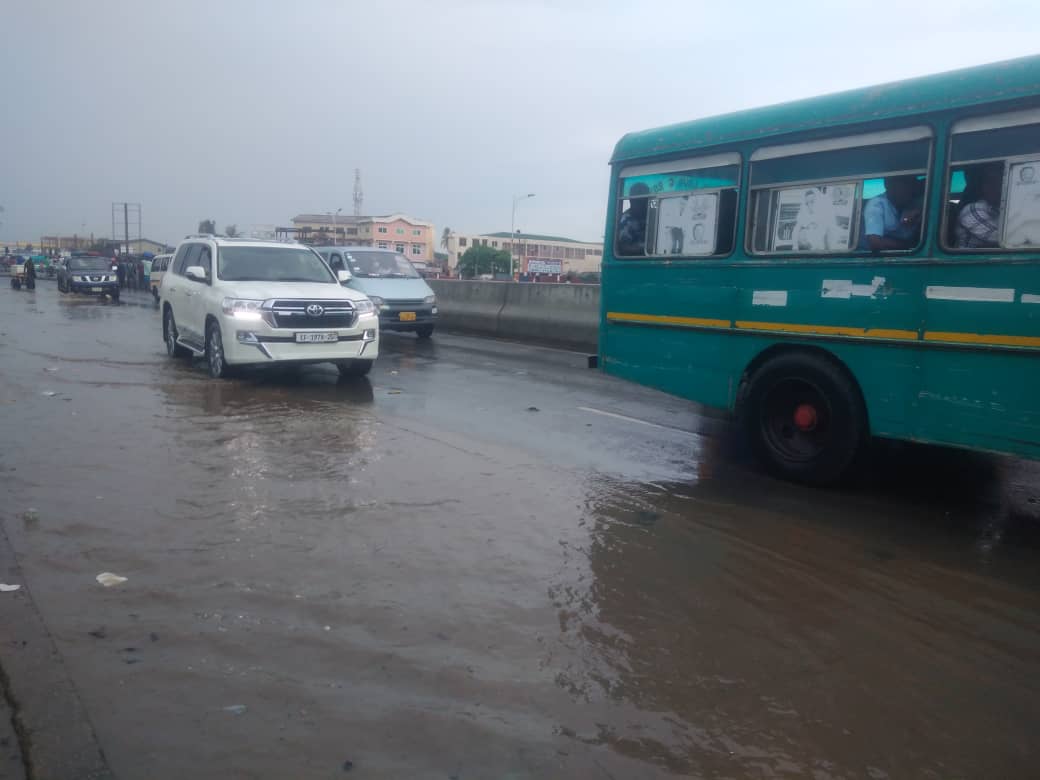Climate Change & Energy
Parts of Accra flooded after 1-hour downpour
Source: ghenvironment.com - April 8, 2022

Some areas in Accra have been flooded after a heavy rainfall on Friday, April 8.
The one-hour heavy rainfall, has obstructed the flow of vehicular traffic on the Weija Barrier – West Hills Mall stretch of the Kasoa Highway, Central Business District, Sahara and Odawna, among other areas.
While many commuters parked their cars for the rain to subside, others were seen carefully driving through the flood which has covered most part of the road.
The Ghana Meteorological Agency had already predicted a thunderstorm on Friday, a few hours before the rain.
“Moderate to heavy Thunderstorm and Rain Activity detected along the coast of the Volta Region at 8:30 am is expected to affect much of the southern parts of the country in the coming hours,” the agency warned in a brief report.
What causes flood in Accra
Research has shown that, in Accra, the capital of Ghana, flooding has been the key source of human vulnerability. Studies carried out on flood vulnerability in the city have given varied attributions to their frequent occurrences.
In “The three-dimensional causes of flooding in Accra, Ghana” published in the International Journal of Urban Sustainable Development, the authors comprehensively explore the various causes of flood hazards in our bid to set the stage for an integrated approach to flood management".
Using mixed methods including document reviews, institutional consultations and key informant interviews, the study categorizes all the causes of flood hazards in Accra into three broad but interrelated thematic areas presenting a platform for integrated flood management.
The study therefore recommends a comprehensive and integrated approach to flood management that takes into consideration the peculiarities of local physical, social, and political conditions.
The integrated flood risk management proposes proactive infrastructure, institutional, and policy measures that address three causes of flooding in urban Accra, urbanization and slum development; rainfall intensity and poor management of surface runoff; and actual and perceived impacts of climate change.
A key aspect of this framework is how it views the perennial floods in Accra as an ‘unmanaged opportunity’; that is, an opportunity, for instance, to harvest rainwater to address the perennial water shortage especially among low-income communities in Accra.



